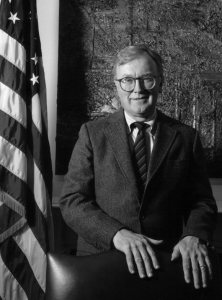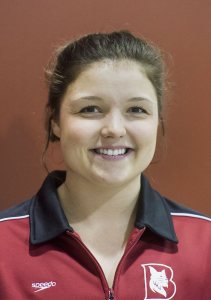
Bates in the News: March 4, 2016
Melissa Paione ’16
She won’t be a Bobcat out of water when she graduates — Lewiston Sun Journal
Sun Journal reporter Tony Blasi profiles Auburn native and Bobcat swimmer Melissa Paione ’16, writing that after graduation it will be “impossible” for her to “turn her back on the water where so many fond memories were made — and records broken.”
Blasi asks, “what’s next for the psychology major after four successful years as a Bates swimmer?”
“I am going to be open to a master’s program,” Paione says. “Just going to stay in touch with the water. I think I would miss it too much if I quit cold turkey.”
“Bates has been around since 1855, and you are the fastest ever to have swum here.”
She chose Bates, she says, for its academic program and for the chance to “work my way up” the swim ladder and “learn from the people who are faster….It ended up working out.”
Paione owns or co-owns three Bates swimming records.
“I tell the kids Bates has been around since 1855, and you are the fastest ever to have swum here,” her coach, Peter Casares, tells Blasi. “That puts things in perspective because you don’t realize what it is to be the best there ever was.”
Emily Rand ’06
Winner of a George Polk Award for television reporting — The New York Times

Producer Emily Rand ’06 and correspondent Jim Axelrod of CBS News won a prestigious George Polk Award for television reporting for their series “Compounding Pharmacy Fraud.”
The New York Times describes the series as being “about pharmacies that billed Medicare and private insurance companies for unproven creams and supplements.”
The Campus Life Project
More than new buildings but a gateway to campus — High Profile
The New England construction and facilities trade publication High Profile put the college’s Campus Life Project on its March cover.

This rendering depicts 65 Campus Ave. in the foreground, seen from the corner of Campus and Central avenues. The second building, at 55 Campus Ave., is visible in the distance. (Ann Beha Architects)
The story, “A New Gateway for a Historic Campus,” written by Joshua Aisenberg of the project architect Ann Beha Architects, says that opening two new residences this fall goes far beyond adding beds.
The project will offer “a new gateway,” for the southeast part of the campus, “one which not only celebrates” the arrival of new students in the fall but also “anchors the residential life of the campus community.”
Paul MacAvoy ’55
A “feisty economist” and builder of business schools — Poets & Quants

The late Paul MacAvoy ’55 was the Williams Brother Professor Emeritus at Yale and former dean of the Yale School of Management.
The economics world took notice of the Feb. 24 death of Paul MacAvoy ’55, the Williams Brother Professor Emeritus at Yale and former dean of the Yale School of Management.
From 1980 to 1991, as dean of the Simon School of Management at the University of Rochester, MacAvoy helped “put the business school on the map,” writes
The school was “small and virtually unknown in the business community,” and MacAvoy built on the “faculty’s dedication to market economics” to cultivate “one of the best economics-trained faculty of any business school.”
Byrne calls MacAvoy a “feisty economist,” a one-time adviser to George H.W. Bush who famously coined the term “voodoo economics” as a way for Bush to challenge Ronald Reagan’s supply-side economics ideas during the presidential primary season of 1980.
At the time, MacAvoy had finished a 10-year stint at MIT’s Sloan School of Management and was co-chair of the President’s Council of Economic Advisers in the Ford administration.
MacAvoy received an honorary doctor of laws degree from Bates in 1976 for a “brilliant career in the study of forces that mark the commonweal, and for his compelling example that the intellectual life must help render effective the councils of state.”
Decision-makers need to be more “concerned about the long-run effects of their activities.”
The Commencement speaker, MacAvoy said that the obstacle to U.S. economic growth was the short-sighted interests of the executive and legislative branches of government.
Changes were needed, he said, “to build in incentives for the decision-makers to be more concerned about the long-run effects of their activities.
“The Congress and the executive branches have to be pushed or pulled into considering extending the term of office, or delegating authority to independent organizations that have a longer time span.”
MacAvoy spoke of the federal regulations that stifle innovation, suggesting that the antidote was “the “unleashing of your energies of individual enterprise.”
“Your intellectual and professional freedom to innovate…provides the essential element in the system to beat the odds that go against us in the game of diminishing returns.”





